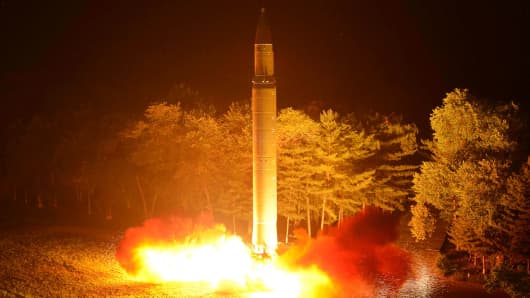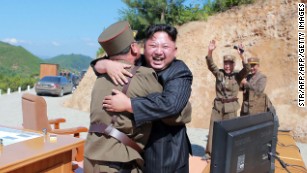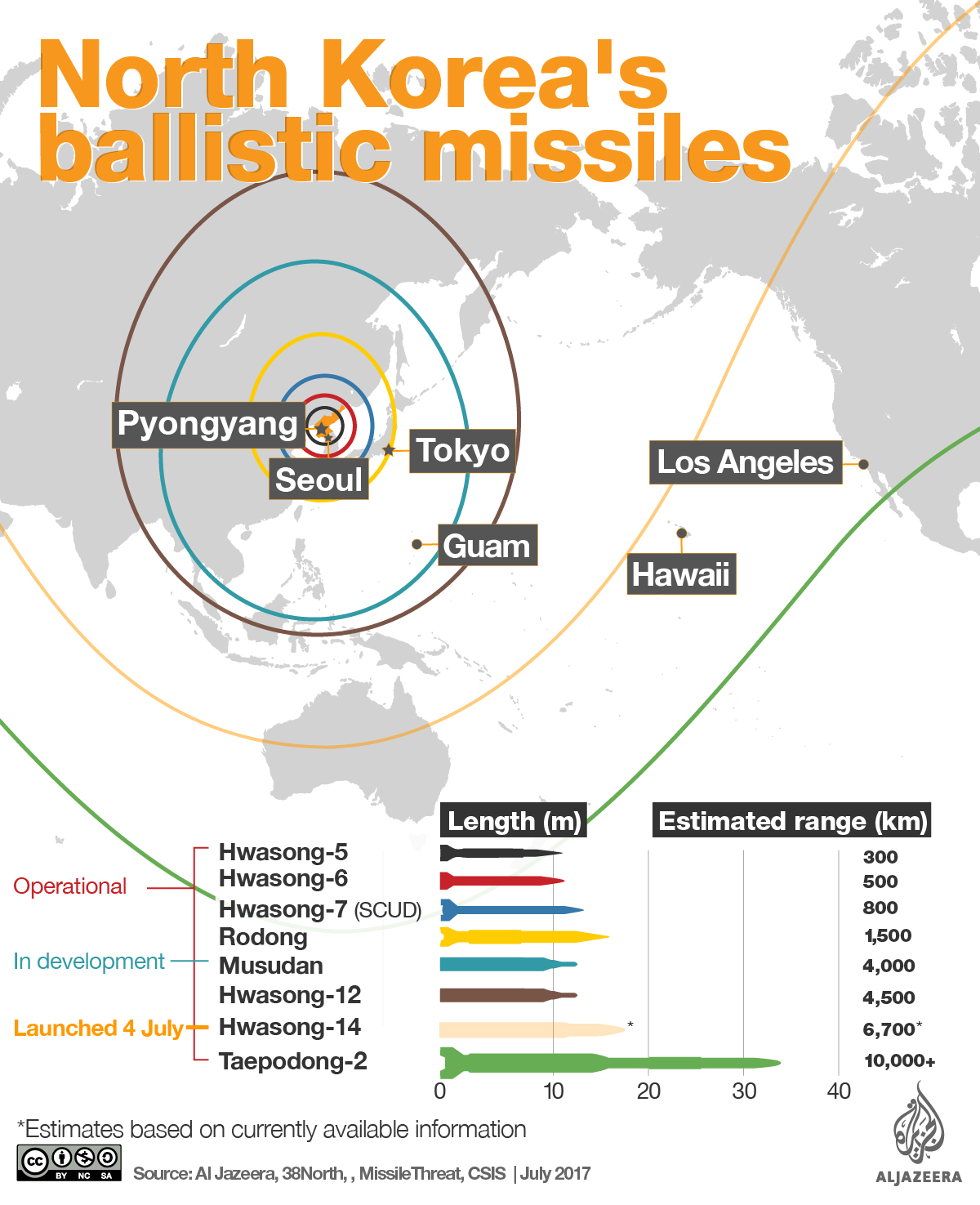North Korea's "Precious Assets"
"You see small bright radiant objects that are shedding off the reentry vehicle — and then it suddenly begins to turn very dim."
"That should not occur. Most likely it broke up into pieces."
"In short, a reasonable conclusion based on the video evidence is that the Hwasong-14 reentry vehicle did not survive during its second test. If this assessment accurately reflects reality, North Korea's engineers have yet to master reentry technologies and more work remains before Kim Jong Un has an ICBM capable of striking the American mainland."
"If the bomb itself were exposed to these very severe conditions, it would be torn apart. In short, if the reentry vehicle breaks up, the bomb is not going to be useful — and it's not going to detonate."
"[They could still detonate the device at around 10 km altitude (or about 6.2 miles)] It would lose a lot of its effectiveness but that's an option. But I don't think that's what they would ultimately want their nuclear-armed missile to do."
"My guess is they need to do another handful of tests [on the ICBM. Nonetheless] An early deployment next year is possible."
Michael Elleman, analyst, consulting senior fellow for missile defense, International Institute for Strategic Studies
 |
KCNA | Reuters
Intercontinental ballistic missile (ICBM)
Hwasong-14 is pictured during its second test-fire in this undated
picture provided by KCNA in Pyongyang on July 29, 2017.
|
"...The era of strategic patience is over. The president of the United States is leading a coalition of nations to bring pressure to bear until that time that North Korea will permanently abandon its nuclear and ballistic missile program."Absolutely nothing seems to give North Korea's Kim Jong-un as much unmitigated joy and pleasure as threatening his neighbours and demonstrating to the United States that geographical distance is no assurance that America will be immune to the power and might of North Korea' ambitions. Its second test of its steadily-improving intercontinental ballistic missile program took place last Friday, the second in a month. The missile sailed into the sea off Japan, eliciting the usual concerns of imminent threat.
U.S. Vice-President Mike Pence
"Diplomacy remains the lead. However, we have a responsibility to our allies and our nation to showcase our unwavering commitment while planning for the worst-case scenario."
"If called upon, we are ready to respond with rapid, lethal, and overwhelming force at a time and place of our choosing."
"[North Korea is] the most urgent threat to regional stability."
General Terrence J. O'Shaughnessy, Pacific Air Forces commander
Issuing from any other country, under any other circumstances, this provocations would be seen as a declaration of war, and consequences would be fairly swift. That is, if conventional, non-nuclear weapons were being used, not the threat of miniaturized nuclear warheads mounted on powerful missiles meant to reach beyond the shores of the North American coastline.
The Pentagon's earlier estimation that North Korea could manage a nuclear-enabled ICBM by early next year, fairly well verifies the expert opinion of Michael Elleman. The big question is, what to do at the present time, aside from carrying out the response flights of supersonic bombers over the Korean Peninsula and shooting down a missile by the THAAD missile interrupter as a responsive show of force and deterrent.

Deterrence is hopeful thinking in the case of Kim Jong-un. The Hwasong-14 ICBM represents the apple of Kim's delighted eye, one he intends to have his scientists and engineers improve upon forthwith. He doesn't flinch from the prospect of Japan, South Korea and the United States deciding to launch any kind of preemptive strike to 'persuade' him that he need go no further, and risk losing everything, along with a significant proportion of his population base, sacrificed to this delusional lunatic's vision of self as world leader.
"Threatening the world, these weapons and tests further isolate North Korea, weaken its economy and deprive its people,"Oblique and ambiguous that statement, said for public effect as much as for intent. For his part, Kim is far more direct, delighted at the impact his successes have on the international community; his regional protector China, stumped over what manner of influence it could possibly exert on this cult leader who will recognize no authority other than his own, willing to kick any representative of China cautioning him to rein in his ambitions out of North Korea, and live with it.
"The United States will take all necessary steps to ensure the security of the American homeland and protect our allies in the region."
U.S. President Donald J. Trump
Consternation is expressed by all other countries, including Russia which still stands foursquare with China in the Security Council blocking all United Nations resolutions sanctioning North Korea even further, both opting for diplomacy with a leader who views with contempt any efforts to persuade him to surrender his ambitions and his rendezvous with destiny as a feared and acclaimed world leader of great renown and prestige.
The Islamic Republic of Iran is fascinated with the gains that The Peoples' Republic of North Korea has made, leap-frogging Iran as the world's number one nuclear concern, knowing that with their regular exchange of nuclear and ICBM scientific personnel and formulae it will benefit hugely from its collegial support of North Korea. Its own progress with ballistic missiles is owing in no small part to the progress realized by its partner in sinister design on the prevailing world order, as recently disorganized as it is.

Labels: Belligerence, Conflict, ICBMs, North Korea, Nuclear Arms

<< Home